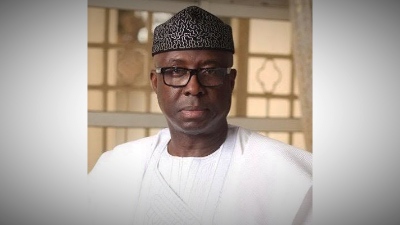Otunba Adeniyi Adebayo, Minister of Industry, Trade and Investment, has inaugurated a technical committee to review the Petroleum Industry Act (PIA) 2021 and its implications on statutory responsibilities of the ministry.
Adebayo, in a statement by his Special Assistant (Media), Mr Ifedayo Sayo, on Monday, noted that the Act tampered significantly with some statutory roles of the ministry.
Essentially, the technical committee, headed by the Director, Legal Services of the ministry, Muhammed Alhassan, will review the PIA 2021 and its implication on Oil and Gas Export Permit being issued to exporters by Commodity Export Department (CED).
The minister said that the committee would review the Act 2021 in relation to the Weights and Measures ACT, and its implication on the Department.
“The committee will highlight the implication of the ACT on the roles of CED and Weights and Measures Departments under the Nigerian Export Supervision Scheme (NESS).
“It will suggest an appropriate strategy to use in bringing the NESS scheme to FMITI since the scheme is about exports, which is a core mandate of the ministry.
“It will suggest ways to remedy the infractions on the responsibilities of the ministry if any; and prepare relevant letters to President Muhammadu Buhari and the National Assembly,” he said.
The inability to reach a consensus kept the Petroleum Industry Bill (PIB) in the National Assembly for two decades, before it was passed by the current Assembly and was quickly assented to by President Muhammadu Buhari on August 16, 2021. Before the Bill was signed, Nigeria’s petroleum industry operated under the Petroleum Act of 1969.
The Act is divided into four parts covering Governance and Institutions, Host and impacted communities, Petroleum Industry Fiscal framework and Administration. One of the aims of this act is to diversify the petroleum industry and open it up to foreign direct investments and private sector participation. Currently, the private sector only participates in upstream sector in the petroleum industry which is primarily exploration. The PIA will allow the private sector, and foreign investments, go into the midstream (refining) and downstream (retail) sectors.
The minister explained that some of the ministry’s roles as they related to the administration of Pre-shipment inspection and the NESS had hitherto been under the Ministry of Finance, and are now under the new commission under the Act.
He stressed that the need by the ministry to leverage on the window provided by the review of the Act to enable it to play a more significant role under the scheme in line with its mandate.
“Therefore, your Technical Committee is expected to take a professional look at the document, come up with strategies that will help redress the identified issues.
“There is a sense of urgency in the execution of your assignment so that we can seek the amendment of the infractions on the statutory functions of the ministry, especially through a request to relevant institutions of government.
“It is important to state that your assignment is critical to the continuity of some of our roles as a Ministry. I am confident in the quality of members chosen to undertake this assignment.
“Therefore, I task you all to make far-reaching recommendations that will help sustain and stabilize our operations,” he said.
The committee which comprises directors in the ministry has two weeks within which it is to submit its report.








